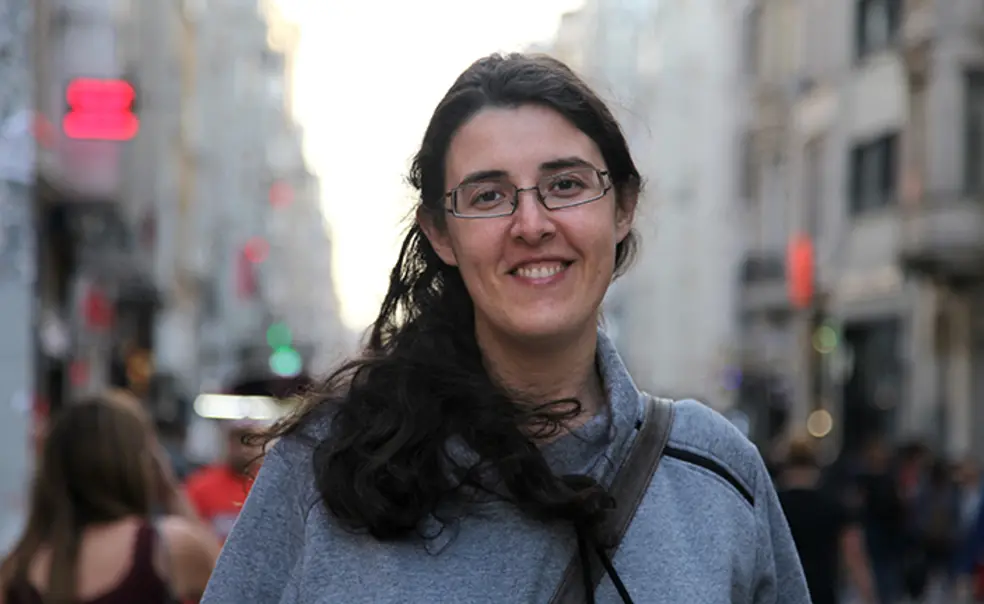Princeton Doctoral Student Elizabeth Tsurkov Kidnapped by Shiite Militants
Elizabeth Tsurkov, a doctoral student in politics at Princeton, was kidnapped in late March from Baghdad and is being held hostage by a Shiite militia group, according to the Israeli prime minister’s office and other sources.
Tsurkov, who holds both Israeli and Russian passports, was conducting field research in Iraq at the time of her disappearance, according to New Lines magazine. She is fluent in Arabic, Hebrew, English, and Russian, and has visited Syria, Jordan, Turkey, and other countries in the region for her academic studies, according to her website. Reports indicate she arrived in Iraq in December or January and underwent an emergency back surgery there in March, according to her Twitter account.
University spokesman Michael Hotchkiss sent PAW the following statement: “Elizabeth is a valued member of the Princeton University community. We are deeply concerned for her safety and wellbeing, and we are eager for her to be able to rejoin her family and resume her studies. We don’t have other information to share at this time. It is the University’s general policy to maintain the confidentiality of student records, consistent with applicable student privacy laws such as FERPA, and out of consideration for student privacy and safety.”
A statement from Israeli Prime Minister Benjamin Netanyahu said Tsurkov is alive and being held by Kataib Hezbollah, which has ties to both Iraq and Iran and is considered a terrorist organization by the United States government. The New York Times reported that “some military groups absorbed into Iraq’s security forces have stronger ties to Iran than to Iraq, and security officials say Kataib Hezbollah is the most prominent.”
Israel and Iraq do not share diplomatic relations, and it is against Israeli law for citizens to enter enemy states, even on a foreign passport; Tsurkov used her Russian passport to enter Iraq, Netanyahu’s statement said.
Princeton students are not currently allowed to perform academic work in either Iraq or Iran, according to a document published by Princeton’s Global Safety & Security unit, which leads “international crisis response efforts,” according to its website.
Tsurkov’s LinkedIn profile says she came to Princeton in 2019 and is a fellow at the New Lines Institute for Strategy and Policy, a U.S.-based nonpartisan think tank, as well as a research fellow at the Forum for Regional Thinking, which is based in Jerusalem.
On her website, Tsurkov wrote: “My research is informed by the desire to understand and convey the points of view and experiences of people in the Middle East, and highlight abuses by powerful actors, whether they are dictatorial regimes, armed groups or foreign countries intervening in the region. I have over a decade of experience in volunteering and working for human rights organizations in the Middle East fighting for the rights of Palestinians, refugees and migrants, torture survivors, human trafficking victims and ethnic and religious minorities.”
A piece published by the New Lines Institute staff said that Tsurkov’s “fieldwork in the Arab world poses no threat to anyone” and that “it is unclear whether her kidnappers actually believe she is the enemy or merely useful … .”
The institute staff wrote that Tsurkov’s last contact with them was in late March, when she said she was finished with her field work and wished to return to Princeton. Her last tweet was published on March 21.
The institute called upon the U.S. Department of State for help securing her release, noting that Tsurkov is an “outspoken critic of all three of the major likely players involved in negotiating her release: Israel, Iran and Russia.”
The Times reported that the U.S. State Department released the following statement about Tsurkov’s case: “We are aware of this kidnapping and condemn the abduction of private citizens. We defer to Iraqi authorities for comment.”
For many at Princeton, the news about Tsurkov evoked memories of Xiyue Wang *15, a doctoral student in history who spent more than three years in an Iranian prison after facing espionage charges while studying in Tehran. During his imprisonment, fellow graduate students led vigils on campus and campaigned for the State Department to work for his release. Wang eventually returned to the United States in December 2019 following a prisoner exchange in which an Iranian scientist accused of violating trade sanctions was released to Iran.
Wang and his wife, Hua Qu *21, sued the University in November 2021, alleging “reckless, willful, wanton, and grossly negligent acts” before and during Wang’s imprisonment. The civil case remains active, according to an online case file.












No responses yet